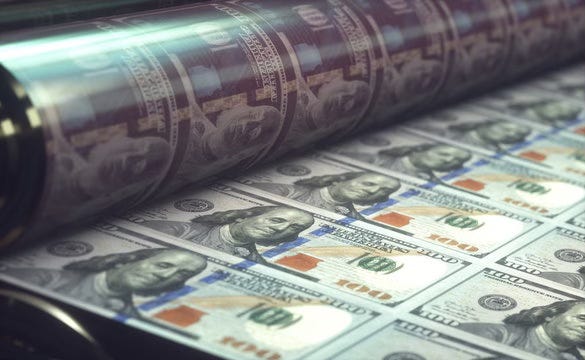I am currently reading through the economist Ludwig von Mises’ book Human Action. Below is his passage on inflation. It is an excellent articulation of the grave dangers that flow from money-printing.
Put simply, inflation is a lie. It makes people think they are wealthier than they really are. It disincentivizes saving and encourages profligacy. Mises doesn’t mention it here, but it also incentivizes grifting—it encourages people to get as close as they can to the money-printer so they can get its benefits first. Instead of making an honest living they engage in anti-social thieving.
Here is the full passage, from page 529-530 of Human Action, 4th revised edition. Emphasis my own.
It would be a serious blender to neglect the fact that inflation also generates forces which tend toward capital consumption. One of its consequences is that it falsifies economic calculation in accounting. It produces the phenomenon of illusory or apparent profits. If the annual depreciation quotes are determined in such a way as not to pay full regard to the fact the replacement of worn-out equipment will require higher costs than the amount for which it was purchased in the past, they are obviously insufficient. If in selling inventories in products, the whole difference between the price spent for their acquisition, and the price realized in the sale is entered in the books as a surplus, the error is the same. If the rise in the prices of stocks and real estate is considered as a gain, the illusion is no less manifest. What makes people believe that inflation results in general prosperity is precisely such illusory gains. They feel lucky and become openhanded and spending in enjoying life. They embellish their homes; they build new mansions; and patronize the entertainment business. In spending apparent gains, the fanciful result of false reckoning, they are consuming capital. It does not matter who the spenders are. They may be businessmen or stock jobbers. They may be wage earners whose demand for higher pay is satisfied by the easy-going employers who think they are getting richer from day today. They may be people supported by taxes, which usually absorb a great part of the apparent gains.
Finally, with the progress of inflation more and more people become aware of the fall in purchasing power. For those not personally engaged in business and not familiar with the conditions of the stock market, the main vehicle of saving is the accumulation of savings deposits, the purchase of bonds and life insurance. All such savings are prejudiced by inflation. Thus saving is discouraged and extravagance seems to be indicated. The ultimate reaction of the public, the “flight into real values,” is a desperate attempt to salvage some debris from the ruinous breakdown. It is, viewed from the angle of capital preservation, not a remedy, but merely a poor emergency measure. It can, at best, rescue a fraction of the saver’s funds.
Tl;dr: the Federal Reserve is a vicious institution. Far from stabilizing markets it destroys them; it occludes the truth. End the Fed.




End the "dual mandate", and the Fed will be better at fighting inflation.
Good short essay. Your "grift" point is interesting. It goes almost unnoticed in economics, unfortunately. An exception is a 1990s paper on bankruptcy for profit by Akerlof and Romer, in which they show that creating what will become failed real estate ventures and failed financial assets can quite lucrative. Prerequisites are a central bank willing to keep interest rates artificially low and government willing to backstop the scam assets. There's plenty of evidence that the 2008 financial crisis was of this nature.
Interestingly, Mises himself was aware of this. Just before WWI he was warning the Austro-Hungarian central bankers about their easy money policy, and didn't understand why the seemed not to get it. At some point Bohm-Bawerk took him aside and said "they do indeed understand you and know you are right. But they are using this policy to finance their own grift." Mises preferred to emphasize the positive economic argument in his economics writing such as Human Action, rather than the ulterior motives and corruption of bad actors (although he addressed these in some of his writing for popular audiences).